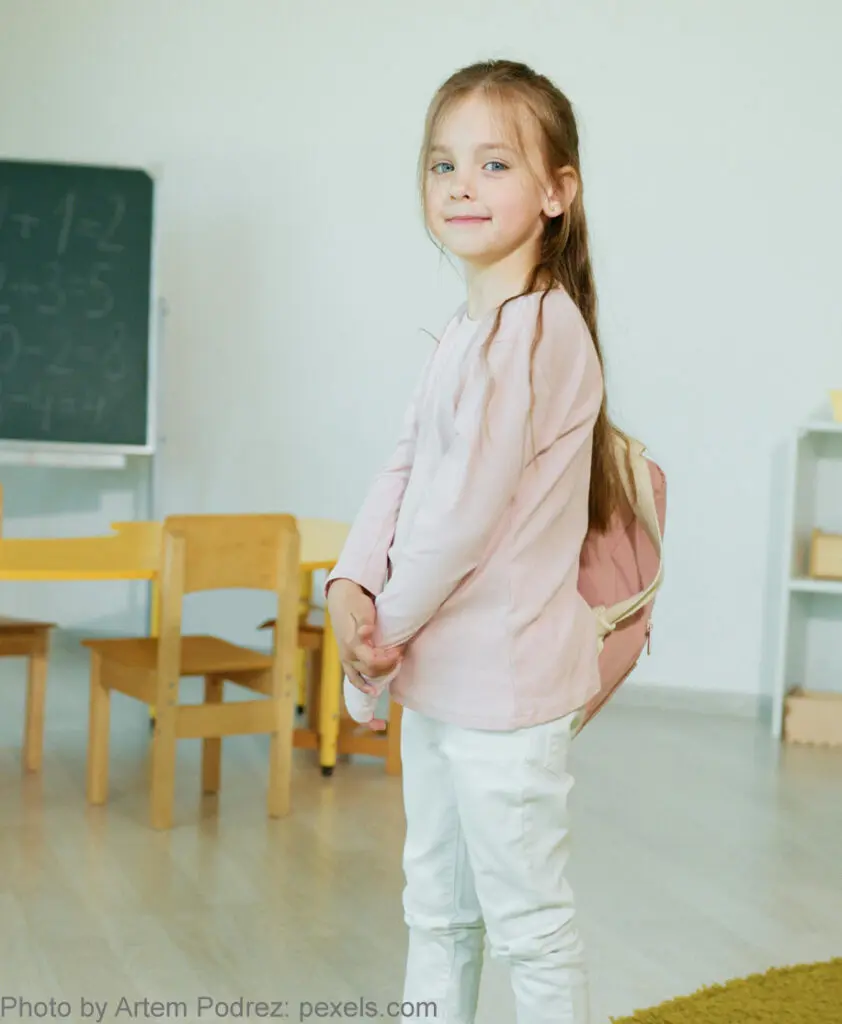Always the New Girl
A new mover’s story

Beth stood at the edge of the school parking lot, clutching her coffee like it was a life vest. The Arizona sun was already climbing high, baking the sidewalk beneath her sandals. She watched her two children—Max and Lily—walk hesitantly into their new elementary school, their backpacks stiff with newness, their shoulders hunched slightly like they were bracing for a storm.
Another new school. Another new town. Another new life.
Her husband, Matt, had already been at his new post for two weeks. He’d come home last night, excited about the guys in his new unit. “One of them even went to Tech with me,” he said, grinning as he slid his boots off at the door. “It’s gonna be a good group.”
Beth smiled and nodded because she was genuinely happy for him—but a part of her winced. It was always like this. Matt adjusted fast. The military had a rhythm for him, a built-in sense of belonging. Wherever they went, he had a uniform, a rank, a team.
Beth had a GPS and a map of the school district.
She climbed into the car, the driver’s seat still warm from the sun, and pulled up directions to the nearest grocery store. The house was still half-unpacked, and they were out of peanut butter. Again. She let out a breath and started the car, her hands tightening on the wheel.
Later that afternoon, Beth sat on the floor of the living room, surrounded by open boxes. The curtains were still crumpled on the couch, and there were no pictures on the walls yet. She held up a framed photo of their last house in North Carolina—Lily on the porch steps, Max mid-jump on his scooter, and Matt in his fatigues behind them, laughing.
It had taken her almost a year to feel at home in that town. To find friends she could text just to chat or meet for coffee. Friends who knew when she was struggling without asking. And then, just like that, it was time to go.
The door creaked open. Matt stepped in and tossed his keys into the bowl by the door.
“How’d drop-off go?” he asked, shrugging off his uniform jacket.
“They were nervous, but okay.” She smiled a little. “Lily found a girl with a matching unicorn backpack.”
“That’s something, right?”
“Yeah. That’s something.”
Over the next few weeks, the kids started settling in. Lily made fast friends with a neighbor girl, and Max joined the local soccer team. Every day after school, they brought home stories—about teachers and games at recess, about what kids said and did and wore.
Beth played cheerleader, counselor, chauffeur. She made school lunches, scheduled dentist appointments, and learned all the shortcuts to get across town during rush hour. She even started a small garden in the backyard, something to root herself, however temporarily.
But making friends for herself? That still felt like climbing a mountain barefoot.
She’d gone to a couple of PTA meetings and a base spouses’ welcome event, but conversations were hard. Small talk made her nervous. She hated the awkward pauses, the forced smiles, the way she second-guessed everything she said afterward.
Still, she tried. For her kids, mostly. Because they were watching. They needed to see that starting over didn’t have to mean hiding.
One Saturday, after dropping Lily off at a birthday party, Beth found herself standing next to another mom who looked just as out of place. The woman had kind eyes and a nervous smile.
“Your daughter in Ms. Tanner’s class?” she asked.
Beth nodded. “Yeah—Lily. Unicorn backpack.”
The woman laughed. “I’ve heard about her. I’m Kim. We just got here from Georgia.”
Beth’s stomach did a flip. Another new girl. Maybe not so alone.
They started talking—halting at first, then more naturally. Turns out Kim’s husband was also stationed at the base. Their kids were around the same age. They exchanged numbers before heading to their cars.
When Beth got home, Lily was already telling Matt about the party in a whirlwind of glitter and frosting. Beth stood in the kitchen for a moment, looking at the contact saved on her phone: Kim – Birthday Party.
It was a small thing. A beginning. But it was enough.
That night, as she tucked Lily into bed, her daughter looked up at her with sleepy eyes.
“Mom? Was it hard for you when we moved here?”
Beth smoothed Lily’s hair back and kissed her forehead. “Yeah. It was. But it’s getting better.”
Lily nodded. “It’s getting better for me, too.”
Beth turned off the light and stood in the doorway for a moment, her heart full.
Maybe she’d always be the new girl. But she wasn’t alone. And every time she reached out—awkwardly, nervously—she was showing her kids something important:
That even when it’s hard, you can still be brave.
